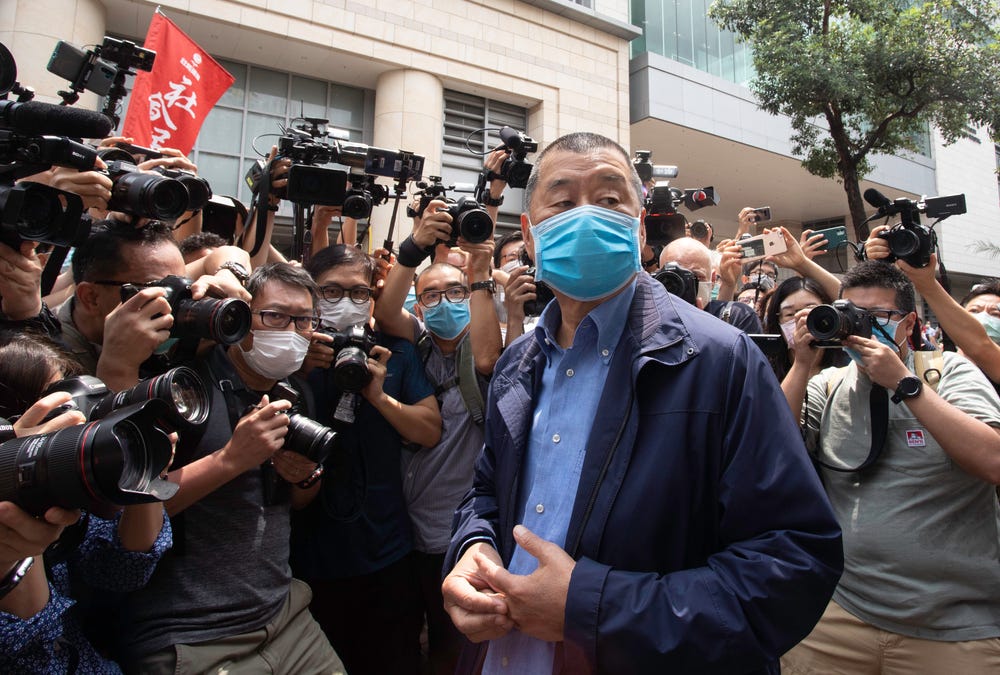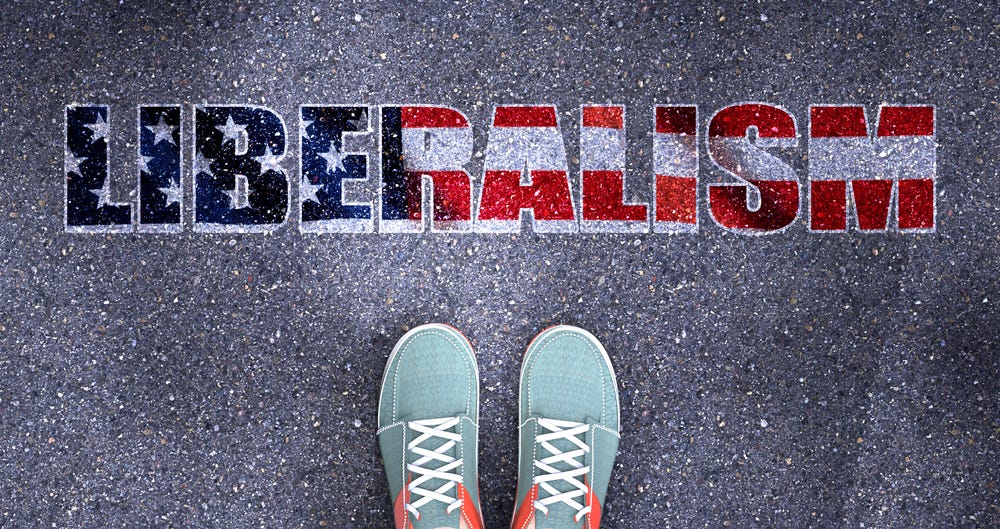E-Pluribus | December 17, 2021
Nothing lasts forever, freedom in Hong Kong takes another hit from China, and a call for a new alignment against illiberalism.
A round up of the latest and best writing and musings on the rise of illiberalism in the public discourse:
Robert Weissberg: Nothing is Forever … Even Woke Universities
Minding the Campus is a National Association of Scholars (NAS) website written by professors concerned about the future of education. While illiberalism on college campuses is a real problem, Robert Weissberg reminds readers that we should look to history for reassurance that all is (probably) not lost.
This institutional decline is hardly unique. Lance Welton offers thumbnail sketches of such deterioration. For example, during the early seventeenth century, English universities became known as finishing schools for the aristocracy. Those seeking serious academics instead enrolled in Scottish universities or in Dutch institutions that stressed science. This decline was further compounded by the English schools’ required religious orthodoxy, and only in the latter part of the 19th century when these restrictions were lifted did Oxford and Cambridge regain their intellectual prestige. In fact, it was only after the Universities Tests Act of 1871 that English universities were opened to Roman Catholics.
Tales from the business world should caution today’s education elite about the wages of horrific decisions, though it may take decades for their full impact to be felt. Remember that GM once had a commanding 50% share of the U.S. market; today it is closer to 17%. Brands such as F. W. Woolworth, Borders, Eastern Airlines, Pan American Airways, and Block Buster Video, among others, were once iconic. Remember when IBM “owned” the personal computer market, and millions regularly shopped at Sears?
Elite schools may slowly decline, though their picturesque facilities will remain. Death by carbon monoxide, so to speak. Smart Asian students are enrolling elsewhere rather than face hopeless odds competing against favored minorities. Less prestigious schools such as the University of Texas at Dallas and Cal Poly Pomona are among the beneficiaries. Bright students from overseas may similarly abandon prestige schools in favor of less politicized venues. Meanwhile, gifted faculty may go elsewhere rather than navigate today’s identity politics.
Read the whole thing.
Washington Post Editors: China crushes Hong Kong’s last defenders of freedom
After shutting down Jimmy Lai’s Apple Daily in Hong Kong earlier this year, the authorities in Hong Kong have jailed Lai for… lighting a candle, write the editors of the Washington Post. Lai’s public defiance of China’s efforts to stamp out the memory of Tiananmen Square was too much for the regime and Lai’s conviction is yet another blow against the apparently dwindling defense of freedom in the city.
On Monday, a judge sentenced publisher Jimmy Lai to 13 months in prison for inciting an unlawful assembly on June 4, 2020. His misdeed? Lighting a candle in commemoration of the pro-democracy demonstrators who died at the hands of the Chinese military in Tiananmen Square 31 years before. Mr. Lai said nothing as he made this gesture, though he did so in the presence of international media. The sentencing judge granted no mercy anyway: “His presence at that press conference was a deliberate act to rally support for and publicly spotlight the unauthorized assembly that followed,” she wrote. “He need not use words of incitement to intend to incite others.”
Mr. Lai was one of eight people sentenced in connection with the 2020 protest. That event sought to continue Hong Kong democrats’ annual custom of commemorating the Tiananmen massacre — one in which thousands regularly took part. What was new was the government’s oppressive ban on assemblies, imposed ostensibly to fight covid-19. “Let us not delude ourselves that this is all about covid-19 and that the criminalization of the vigil is only an exceptional measure at an exceptional time,” one of Mr. Lai’s co-defendants said in court. “What happened here is instead one step in the systemic erasure of history, both of the Tiananmen Massacre and Hong Kong’s own history of civic resistance.” Indeed, when June 4 came around this year, the Hong Kong government cracked down on demonstrations.
Read it all.
Robert Tracinski: The Case for Neo-Classical Liberalism
Discourse Magazine will host a monthly column by Symposium’s Robert Tracinski on classical liberalism. In Tracinski’s debut, while not quite ready for a manifesto, he begins exploring what neo-classical liberalism might look like and how it will take support from many all across the ideological continuum from right to left to put society on the right track again.
[W]e need an ideological realignment in which various stripes of liberals find ways to work together and realize that our differences should not prevent us from making common cause. I describe this new alignment as “neo-classical liberalism,” a combination of the most common version of liberalism on the left—the market-friendly neoliberal, —and the most common version on the right—the libertarian-leaning classical liberal.
The important shared concept here is “liberal.” A liberal is someone who thinks that freedom is one of the central principles of any just, moral and flourishing society.
[…]
I do not think for a moment that the cause of liberalism is doomed. A free society offers so many advantages and liberates so much human talent and creativity that it will always be more powerful and more appealing than any form of illiberal society—over the long run. But our current moment is one of rising challenges to liberalism and of defections and retreats from the liberal cause.
This is a moment of crisis, and it is time to start acting like it. The very first thing we can do is to combine our powers and work together against illiberalism, whatever side of the supposed political spectrum it comes from. As Ben Franklin’s Revolutionary-era slogan put it, join or die. But that is going to mean breaking out from old partisan loyalties, questioning long-held assumptions, and doing fresh thinking about what liberalism is and why we need it.
Read it all here.
Around Twitter
Thomas Chatterton Williams responds to a hysterical article from Vox entitled “The world as we know it is ending. Why are we still at work?”
Does the First Amendment need a rewrite? Here’s a for and against:
Via the Washington Post, Harvard University’s admissions priorities on display:
Finally, via Peter Boghossian, Bruce Gilley explains “liberal society”:











